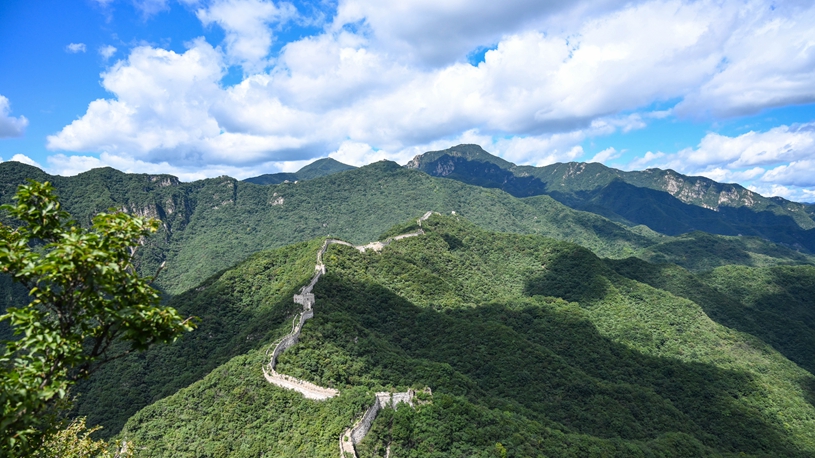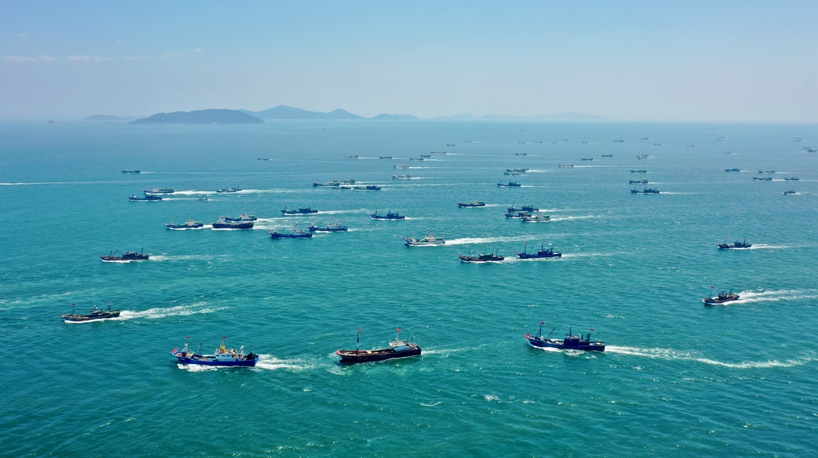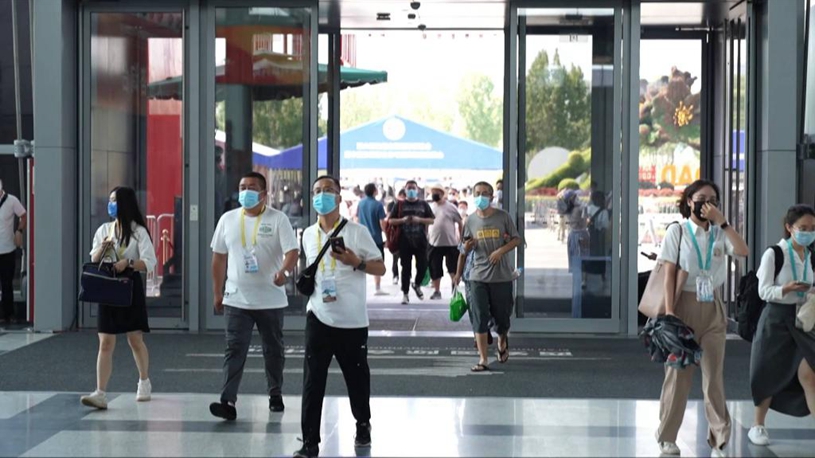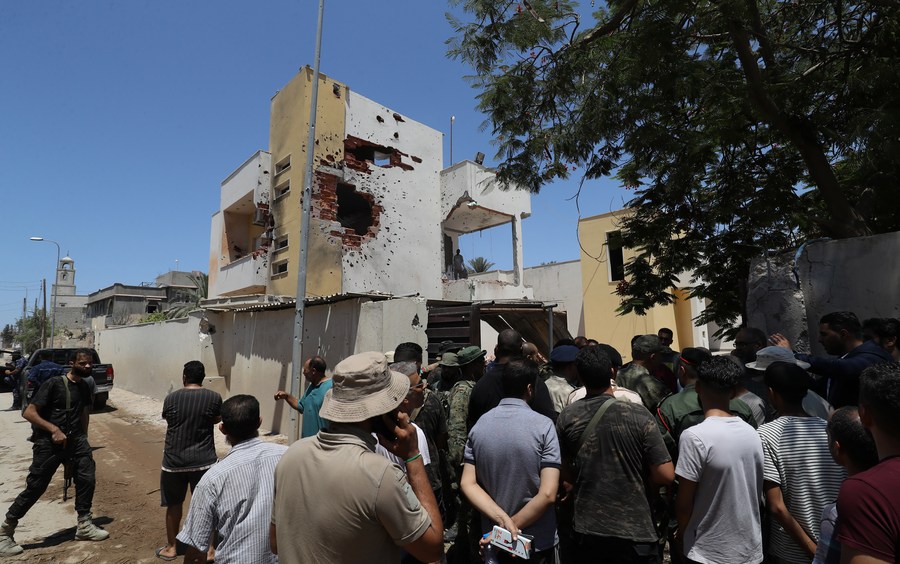
Photo taken on July 23, 2022 shows a damaged house in Tripoli, Libya. (Photo by Hamza Turkia/Xinhua)
The U.S.-led strikes 11 years ago sold "illusions that Libya would become an advanced country and see a better life" but "what happened was quite the opposite," a Libyan housewife says.
TRIPOLI, Aug. 19 (Xinhua) -- In 2011, the United States and its allies launched an operation coded Odyssey Dawn to overthrow the Libyan late leader Muammar Gaddafi's regime, in the name of bringing a brighter future. However, the military intervention has since only plunged Libyans into an abyss of greater economic and security darkness.
Khadija al-Mansuri, a 46-year-old housewife in the capital Tripoli, described the U.S.-led strikes in her country as "illusions sold by Western countries that Libya would become an advanced country and see a better life after Gaddafi."
"However, what happened was quite the opposite," she told Xinhua.
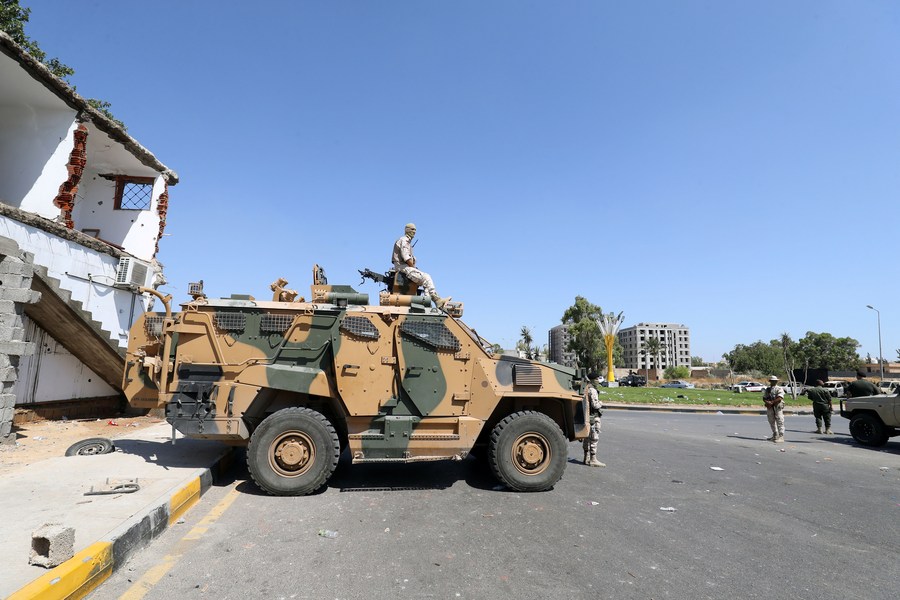
Army forces gather in Tripoli, Libya, July 22, 2022. (Photo by Hamza Turkia/Xinhua)
Blessed by rich hydrocarbon resources and a strategic location, Libya was once a wealthy country, with more than 12,000 U.S. dollars in per capita GDP in 2010.
A year later, sparked by the U.S.-led military intervention under the guise of "freedom and democracy," widespread unrest overran Lybia. For the past 11 years, political turmoil and armed conflicts have haunted the North African country, leaving its people in pervasive insecurity and hardship.
"The Western intervention in Libya and the U.S.-led operation in 2011 were a complete conspiracy ... because the regime was changed by force, not by the willingness of the people," Faraj al-Dali, a Libyan political analyst, told Xinhua.
"That is how we have fallen into an unpredictable cycle of civil war," he said.
"The United States ... always tries to impose its own democratic system on others" but turns a blind eye to major deficiencies in such a system, al-Dali noted.
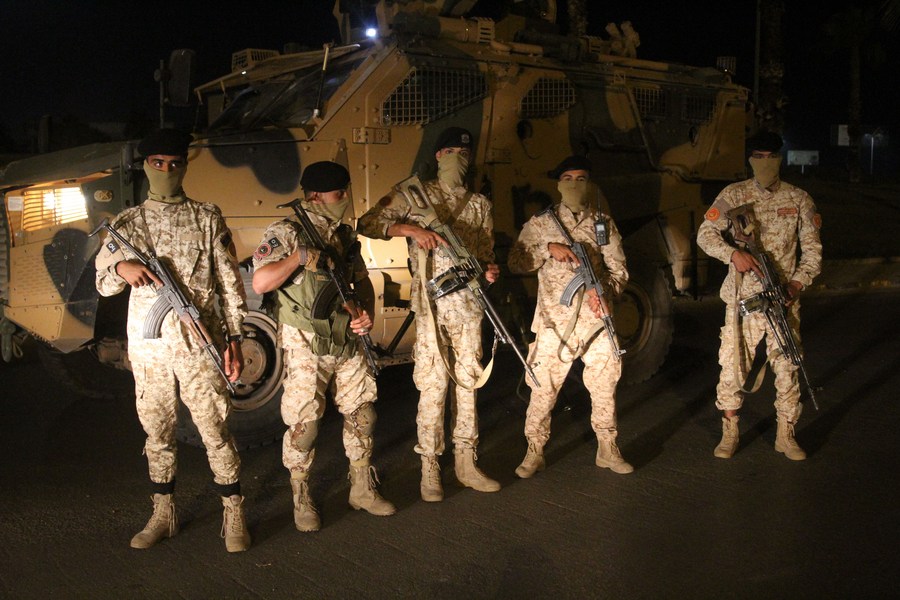
Fighters of Libyan army's 444th brigade of the Government of National Unity are seen in Tripoli, Libya , June 10, 2022. (Photo by Hamza Turkia/Xinhua)
Talking about his plight in the past 11 years, Mahmoud Darwesh, a 37-year-old translator in Tripoli, said the exchange rate of Libyan dinar to U.S. dollar has spiralled down from 1.28 dinars to one dollar before 2011 to the current 4.9 dinars.
"The depreciation of the national currency has caused the cost of living to rise sharply. Eleven years ago, our lives were well secured. Now we have power cuts for more than 10 hours a day," he lamented.
"Unfortunately, year after year the change is for the worse," Fat'hi al-Madhuni, a teacher and father of five children, said in a resigned voice.
Before 2011, his monthly salary was enough to support the entire family, but now it can barely last half a month, the 40-year-old teacher said, adding he has to find time to drive a taxi to support his family.

Damaged cars are seen after clashes in the capital Tripoli, Libya, May 17, 2022. (Photo by Hamza Turkia/Xinhua)
Iman Jalal, a political science professor at the University of Tripoli, believed that Washington should realize that every country has a political system that suits its own condition.
"Trying to impose a political ideology on other countries is doomed to complete failure," she told Xinhua.
"All previous attempts, be it in Afghanistan, Iraq, Syria or Libya, have proven that it is the U.S.-led (violent) intervention that has caused prolonged poverty and backwardness in these countries," she noted. ■


